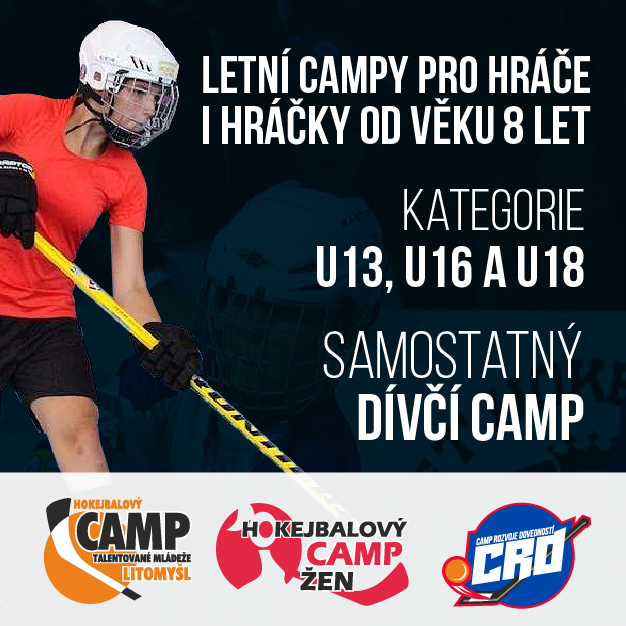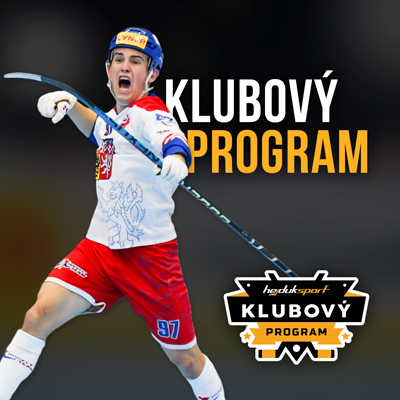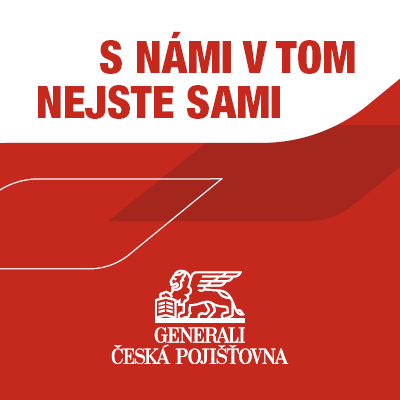“We Need to Learn from Our Failures,” Says Slovak National Team Coach Milan Rampáček

The Slovak men's ball hockey national team has always been, and still is, among the top teams globally. They won the world title four consecutive times. However, two years ago in Canada and this year in Switzerland, they didn't make it past the quarterfinals.
“It’s Not Just About Quality; You Have to Be Mentally Prepared Too”
Coach, your team finished in fifth place at this year’s World Championship. How do you look back on the tournament?
First of all, I consider it a failure. We are a country that was at the top for a long time, and a large part of the ball hockey community in Slovakia already expects a medal every time, but that’s a somewhat distorted view, and sometimes you have to look at it realistically. We need to start living a bit more modestly, raise a new generation, and focus on the younger categories of national teams and build from there.
From 2013 to 2019, you became world champions four times in a row. Last year's championship in Canada, like this year in Switzerland, ended for Slovakia in the quarterfinals. What do these placements mean for Slovak ball hockey?
I’ve been in different positions at the last two championships, so I have a different perspective each time, but the biggest problem has always been the significant turnover in the squad. Bringing 13 to 16 newcomers to each championship is a lot, and our five best players from last year’s championship in Canada weren’t even in Visp. They could have been there, but they didn’t want to play anymore or couldn’t due to work or personal reasons, and it’s tough to find such players year after year.
Your squad had a mix of youth and experienced players who had achieved success with the national team in the past. Do you think the current team had the potential to achieve more?
Yes, we had the potential to make it to the semifinals, but we didn’t handle the two group stage games against Greece and Canada. Otherwise, we would have had a more favorable opponent in the quarterfinals, but it’s behind us now, and we need to learn from it, find more suitable types of players, maintain the core of the team—about 14 to 17 players—strengthen it well, and it will be good. I want to raise a new strong generation, and that’s why the experienced players were there, to lead the younger ones and show them the way. I have a plan in mind and types of players who have the future and quality to play at the World Championship. Our league is good, but the World Championship is another level. It’s not just about quality; you have to be mentally prepared too, and that’s where some players fell short this year.
Before the start of the championship, you lost key defender Marek Gajdoš. Was that a significant loss for the defense, or did you have enough players who could replace him adequately?
Marek was a huge loss. I would compare it to if the Czech Republic lost Jan Čejka. He is currently the best player in Slovakia and irreplaceable in the locker room, and on top of that, he’s a great person. But as I mentioned, several players stayed home, either because they didn’t want to or couldn’t go to the World Championship, which is a pity for us.
In the group stage, you finished third, losing to Canada and Greece. What did these matches reveal to you heading into the knockout rounds?
They were very unlucky games for us. Against Greece, we were leading 2:1 with just nine seconds left in the second period, and the shot count was 24:5, yet we went into the locker room with a 2:2 score. We had three great chances from our top scorers in the league, but we didn’t convert, and then we foolishly got penalized and lost the game. And Canada? Again, at the end of the game, with a 3:3 score and forty seconds left, we had the ball behind our net, but we messed up and conceded a goal 15 seconds later to lose 4:3. It’s about experience and composure—exactly what we had during our golden years. But I don’t judge the boys; I also made some mistakes at this championship, but they must not be repeated. We all need to learn, and the results will come.
In the quarterfinals, you faced the USA. The game turned in the second period when the Americans built a three-goal lead. You managed to reduce the gap, but the opponent quickly extended it and headed towards a 7:3 victory. How do you assess this game, and what was key in your view?
The first period was excellent and evenly matched, but right at the start of the second, we made three critical mistakes, and that cost us the game. I watched three USA games, did video analysis, and specifically showed the defenders what to prepare for and be wary of, but we didn’t execute it, and the Americans are so good that they punished us without mercy. Two goals were into an empty net, which was a gamble that didn’t pay off, but in any case, we can’t rely on one scorer for the entire championship. The guys who are top scorers and team leaders in the league admitted that they should have been scoring more. If you want to compete for medals, every line has to contribute like during the golden championships when we had six or seven scorers and even defenders were scoring, which was crucial.
Regarding the organization of the championship itself, did it meet your expectations, or did the Swiss organizers surprise you in any way?
In a word, excellent! Everything was well-prepared, just as I expected.

“We Need to Work Even More on the Youth League”
In two years, the next World Championship will be hosted by the Czech Republic. Will Milan Rampáček be on the bench again as head coach, and if so, are you already looking forward to the championship?
I must admit that although I had a contract for two championships, a proposal from one management member came up for my dismissal, and a decision will be made at the beginning of September. I have an interest, I have a vision, and throwing away my two-year work to start building something new again is nonsense. That’s why I went to the Executive Committee on Monday to hear the competent people speak openly. I think it was a good approach from me, and we clarified things directly, but we’ll see how they decide. If I am to continue, I would lead our U23 team next year in Hradec Králové to prepare and groom additional representatives for Ostrava. We need to work even more on the youth league so that we constantly move forward and create one big community of people from management through the league to the last equipment manager who will cooperate.
Now let's shift from the national team to the club scene, specifically to the HBK Hokejmarket Skalica team, for which you played in the past and celebrated two Extraliga titles in 2017 and 2019. How do you remember those successes?
Skalica is my hometown. I love it; I have many acquaintances here, so bringing 700 to 800 people to the ball hockey stadium and winning two titles in front of them is exactly what you want to experience. We are a small town, and everyone knows each other like "Hujeři" (laughs), and the town lived with us. I hope to experience it again, but only as a spectator. I will celebrate with them, even if not as long as after the first title. Even now, I still hear Radovan Zelenka’s drum that didn’t stop for three days (laughs).
In 2022 and 2023, you reached the finals, but the titles were won by your opponents, specifically LG Bratislava and the following year, HBK PROTEF Považská Bystrica. In your opinion, what was missing for you to win, and could you have been champions of the Slovak top league twice in a row?
It always came down to the decisive seventh game, and that's where luck plays a big role. Považská and LG are great teams and have long been part of the top three in Slovakia with us, and those series were unforgettable. And even though losing hurts, I know we did our best. I still regret it, and I’d like to turn back time, but it’s not possible. Anyway, even losses push us forward.
You retired from ball hockey right after losing the final in 2023. You have three world championship titles as a player with the national team and the two mentioned club titles with Skalica. How do you look back on your entire career, and what did ball hockey bring to you personally?
Ball hockey provided me with a more beautiful and fulfilling life. It pushed me forward as a person. It showed me that in both life and sports, if you work hard, give it your all, and love the sport, it will repay you. But what I always emphasized was humility—whether towards myself or my opponents. On the field, I hated them, I was unpleasant, but that was only because I wanted to beat them in sports, even if a little rough play was involved. After the game, I always shook hands, and they were friends again, and I wouldn’t change a thing. I achieved everything in this sport—titles, individual awards, I visited presidents, appeared on TV and everywhere imaginable, things I never dreamed of as a boy from Skalica. But I pursued it and knew that together with the great teammates I had, we could do it, and we did.
Last year, you introduced all ball hockey fans to your new project called Train24. How did this idea come about, and can you tell readers a bit more about it?
I had this idea in my head for a long time, but unfortunately, I got injured and couldn’t record more training sessions. It was all about showing ball hockey players that you can train individually, just like I did throughout my career. Believe me, I spent over a hundred hours on this, and I knew that if I took 10,000 more shots a month and did more strength training than my opponents, I’d be better. I had a vision, and it worked. There is always someone better than you, but I wanted to be among the best and not lag behind.



